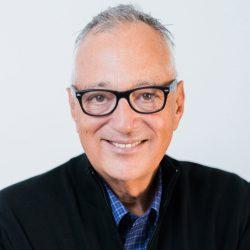Our second day on the ground in Jordan was even more sobering than the first. The needs here are absolutely overwhelming!
Being here is like stumbling on the scene of a mass tragedy. There is chaos, confusion, utter despair—the full scope/range of human misery on every face.
Several members of our team served a hot lunch to about 50 hungry refugees who had crossed the border into Jordan over the past year. Most of their families in Syria had been killed or captured and held for ransom. Walking away from their homes, their jobs—everything they’ve ever known—they gathered remaining loved ones and made the long journey across the desert—taking an average of 30-45 days— to be smuggled across the Jordanian border.
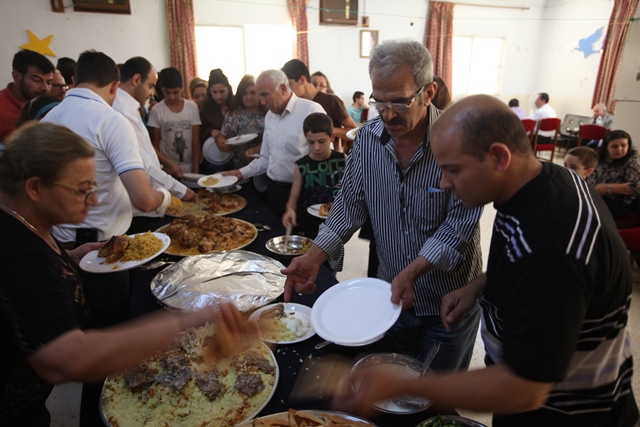
As the refugee crisis in bordering nations continues to escalate, conditions within Syria are extremely dire. Electricity is only available for about an hour each day, making everyday tasks impossible to complete. Communication among family members is virtually nonexistent, resulting in an epidemic of missing parents and orphaned children.
While there are millions of innocent civilians—people with various religious affiliations, economic backgrounds, and political views—the violence has been especially brutal against Syrian Christians. We were told that in one town, between 200-300 Christians were forced from their homes and herded in a group to be executed by soldiers. Thousands more are believed to be in hiding because of their faith . . . terrified to even leave their homes because of unbelievable torture and persecution.
Although we can’t reverse the damage that has been done, our prayer was that today, this small remnant of survivors would experience the love of God in a small, but tangible way. The children were given toys—a luxury many had not experienced for months. It was the time to enjoy the simple joys of childhood again, even for just a few brief moments. Each family also received a package of supplies that included staple food items, water, and other critical provisions.
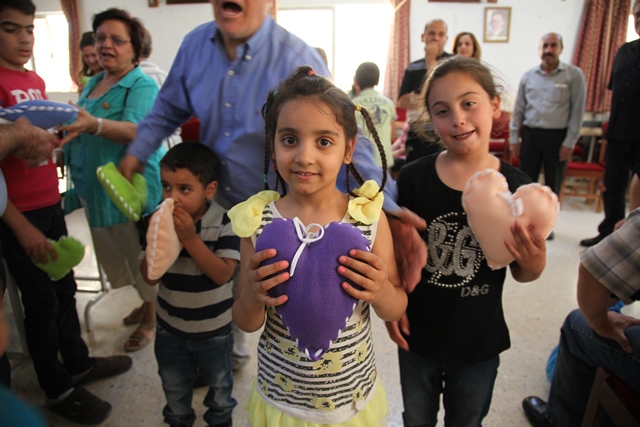
And then, we simply listened.
Every refugee we met had a chilling story of how they made their way from war-torn Syria. Some couldn’t hold back the tears, while others stared blankly ahead, too traumatized to express any emotion other than utter shock.
Andraus, was a successful Christian lawyer in Syria but was forced to give up his practice because of the conflict. Most of his friends and family have been killed by war—by car bombs, mortar blasts, or systematic executions by soldiers. There were two cars bombs planted in vehicles by his church in attempt to kill as many people in the church as possible. Many lost their lives or were badly wounded.
“We have 24 hours of fear all the time,” Andraus told us.
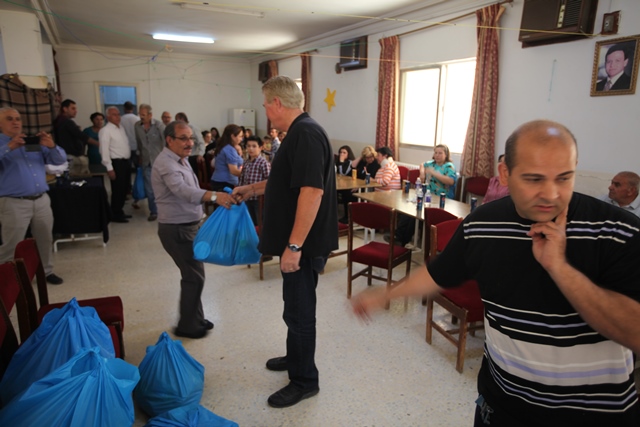
Salaam, the owner of a clothing factory, and his wife are from Aleppo. Most of his family fled to America when the fighting began. Salaam decided to move to a nearby town and wait out the fighting. One day, militants arrived at his home and forced Salaam and his wife to stand in their yard while each were stripped naked and mercilessly interrogated. After the soldiers left, the couple fled their home immediately and hid for hours in an abandoned building. Knowing that the soldiers would return, Salaam sent his wife, daughter, and mother to a relative’s house where they hid for over two weeks while he made preparations to leave Syria.
On the way to visit his family, he was kidnapped, beaten, and kept blindfolded in a building for four days. Since Salaam was known in the community for being a successful business owner, the militants attempted to collect a ransom from him. Miraculously, he was rescued by friends and taken to join with his family. Leaving everything behind, Salaam and his family finally crossed the border into Jordan six months ago, where they now live in a crowded, disease-ridden building with dozens of others.
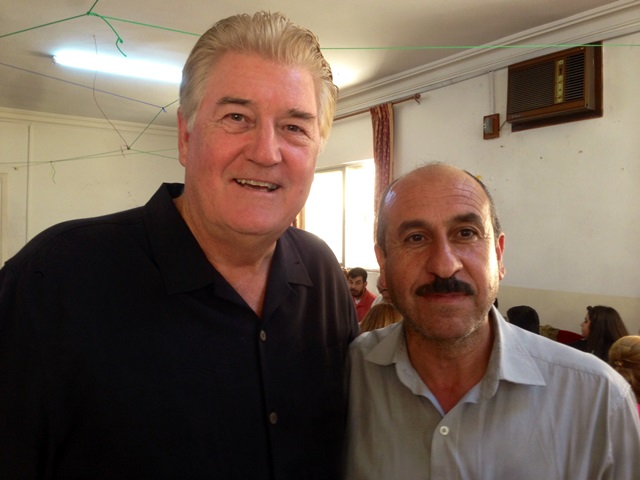
Fear has overtaken the people Syria. Their losses—truly incomprehensible. Although I will never understand their pain, I cannot allow it to numb me into forgetting what we share.
We may speak a different language from these Syrian refugees, but they are not strangers. These families are not unlike our own. They had jobs, families they loved, and success in their communities. They attended church and school. They, too, long for their children to experience the joy of childhood.
They are my neighbors across the street, schoolmates of my grandchildren, business professionals and mothers and fathers that I pass on the street every day.
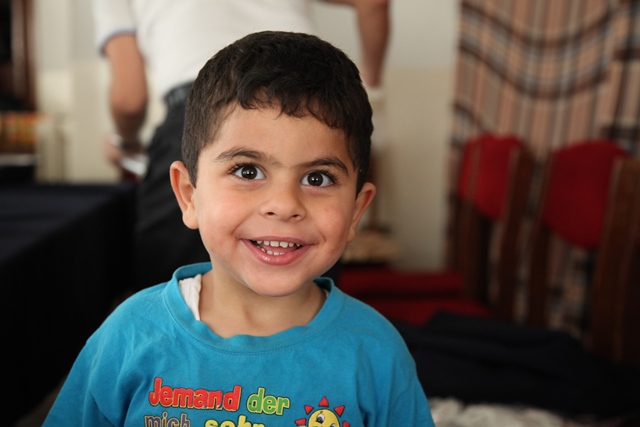
We are all human, made in the image of God. We belong to Him—to one another.
If we truly understand this truth—that underneath a conflict obscured by politics and fear are people who desperately need our help—than we will all stand to our feet today in unison.
We will do more than just watch our TV screens in disbelief.
We will move beyond guilt and pity and start practicing an authentic brand of compassion . . . one that actively meets people where they are instead of simply hoping someone else will do the job.
Today, millions of Syrian refugees are staring in the face of death, uncertainty . . . utter hopelessness.
Will you—will we—be the ones to say “ENOUGH”?




